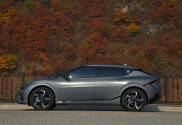Hydrogen-Powered Defense: The Next Big Thing?

Hydrogen-Powered Defense: The Next Big Thing?
Mach Industries, a startup founded by Ethan Thornton when he was only nineteen and known for its innovative hydrogen-powered platforms, is quickly gaining traction in the defense industry. The U.S. Department of Defense (DoD) and the venture capital firm Sequoia Capital are interested in the company because they believe the technology it develops could give the U.S. military an edge in conflicts against near-peer adversaries.
Ethan Thornton’s obsession with electrolysis, which splits water into its component elements, led him to create Mach Industries. Thornton used electrolysis to create a small arms device and wrote a 20-page paper to convince his parents to give him $200 to do it. The electrolyzer and deer feeder batteries gave the device the functionality of a bazooka.
Before starting his first year at MIT, Thornton began working at the institute’s national R&D center for the DoD, the MIT Lincoln Laboratory. When he realized that MIT wasn’t the place to make his vision a reality, he dropped out to concentrate on establishing governmental connections. Thornton hired Erik Limpaecher as a senior technical staff member in the energy systems group and Mark Donahue as the program manager for autonomous systems and control, before leaving the Lab after 15 years.
Thornton, with Limpaecher and Donahue, created Mach Industries to supply the military with hydrogen-powered platforms like unmanned aerial vehicles (UAVs), munitions, and hydrogen generation systems. The company is betting on hydrogen combustion, which is powered by an energy source that can be manufactured in the field, to give the military an edge in conflicts with near-peer adversaries.
The approach to munitions taken by Mach Industries is more realistic and cost-effective than the elaborate but pricey programs currently in use. Instead of thinking of their weapons as missiles, Mach Industries views them as bullets. Savings are substantial when a missile is transformed to a bullet. Mach Industries prefers projectile-based systems to rocket ones because the latter requires users to bring their propellant and sensors, driving up costs significantly.
Thornton has proposed a less expensive method of producing weapons, claiming that his company is “working to replace gunpowder.” Hydrogen-powered munitions are being developed by the company to give the military an advantage over near-peer adversaries. Mach Industries is banking on hydrogen’s combustibility to produce weapons that outperform their conventional gunpowder counterparts while also being more cost-effective.
Mach Industries is developing a wide range of hydrogen-powered military hardware, including UAVs, weapons, and generators. Thanks to the company’s UAVs, the military may have access to a highly maneuverable and efficient platform that runs on hydrogen. The versatility of this platform means it could be used for ISR, comms, and transport duties.
Hydrogen-powered munitions could provide the military with a more efficient and cost-effective option than traditional gunpowder munitions. Hydrogen is a great fuel source for weapons that need to be used quickly and effectively due to its high combustibility and ease of production in the field.
Mach Industries is also developing hydrogen generation systems for local consumption. Such systems may provide the military with a clean and efficient energy source for a wide range of applications, including but not limited to power generation, heating, and cooling.
Investors are paying attention to Mach Industries because the aerospace and defense industry is expected to receive nearly $8 billion in venture capital funding in 2018, up from just $1.4 billion in 2018. The $5.7 million in Mach’s seed round came from companies like Marque VC and Champion Hill Ventures.
The funding will be used to bolster the company’s engineering, manufacturing, research & development, and human resources teams. Thornton expects to produce thousands of products annually within the next five years, with some systems reaching the end-user within 12 months and others taking around 12 years.
First reported on TechCrunch
Frequently Asked Questions
Q: What is Mach Industries?
A: Mach Industries is a startup founded by Ethan Thornton in 2003 that develops hydrogen-powered platforms for the defense industry.
Q: Why is Mach Industries gaining traction in the defense industry?
A: The defense industry is increasingly interested in hydrogen-powered platforms because they offer a number of advantages over traditional platforms. Hydrogen is a clean and efficient fuel source, and it can be produced in the field. This makes hydrogen-powered platforms ideal for use in remote or austere environments.
Q: What are some of the hydrogen-powered platforms that Mach Industries is developing?
A: Mach Industries is developing a wide range of hydrogen-powered platforms, including:
- UAVs that are more maneuverable and efficient than traditional UAVs.
- Hydrogen-powered munitions that are more powerful and cost-effective than traditional gunpowder munitions.
- Hydrogen generation systems that can provide the military with a clean and efficient energy source.**
Q: What are some of the challenges that Mach Industries faces?
A: Mach Industries faces a number of challenges, including:
- The high cost of developing hydrogen-powered platforms.
- The lack of infrastructure for refueling hydrogen-powered platforms.
- The need to develop new safety standards for hydrogen-powered platforms.**
Q: What are the company’s plans for the future?
A: Mach Industries plans to continue developing hydrogen-powered platforms for the defense industry. The company also plans to expand into the commercial market.
Q: How can I learn more about Mach Industries?
A: You can learn more about Mach Industries by visiting their website at www.machindustries.com. You can also follow the company on social media @MachIndustries.
Q: What are the benefits of using hydrogen-powered platforms?
A: Hydrogen-powered platforms offer a number of benefits over traditional platforms, including:
- Increased efficiency: Hydrogen is a more efficient fuel source than traditional fuels, such as gasoline or diesel. This means that hydrogen-powered platforms can travel farther on a single tank of fuel.
- Cleaner emissions: Hydrogen combustion produces no emissions, making hydrogen-powered platforms a more environmentally friendly option.
- Flexibility: Hydrogen can be produced in the field, making hydrogen-powered platforms more adaptable to remote or austere environments.
- Scalability: Hydrogen-powered platforms can be scaled up or down to meet the specific needs of the military.
Q: What are the challenges of using hydrogen-powered platforms?
A: There are a few challenges associated with using hydrogen-powered platforms, including:
- High cost: The development and deployment of hydrogen-powered platforms is more expensive than traditional platforms.
- Lack of infrastructure: There is currently a lack of infrastructure for refueling hydrogen-powered platforms.
- Safety concerns: Hydrogen is a flammable gas, so there are some safety concerns associated with using hydrogen-powered platforms.
Q: What is the future of hydrogen-powered platforms?
A: The future of hydrogen-powered platforms is promising. As the cost of hydrogen production decreases and the infrastructure for refueling hydrogen-powered platforms is developed, hydrogen-powered platforms are likely to become more widespread. The military is particularly interested in hydrogen-powered platforms, as they offer a number of advantages over traditional platforms.



